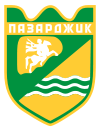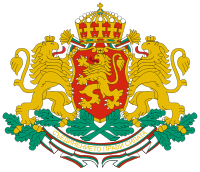Pazardzhik
| Pazardzhik Пазарджик |
|||
|---|---|---|---|
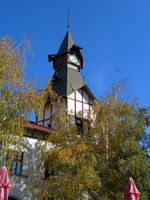 |
|||
|
|||
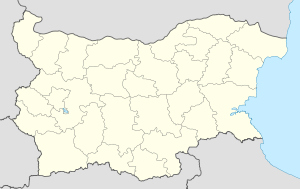 Pazardzhik
|
|||
| Coordinates: | |||
| Country | |||
| Province (Oblast) |
Pazardzhik | ||
| Government | |||
| - Mayor | Todor Popov | ||
| Elevation | 205 m (673 ft) | ||
| Population (2009-02-02) | |||
| - Total | 86,744[1] | ||
| Time zone | EET (UTC+2) | ||
| - Summer (DST) | EEST (UTC+3) | ||
| Postal Code | 4400 | ||
| Area code(s) | 034 | ||
| License plate | PA | ||
Pazardzhik (Bulgarian: Пазарджик, also spelled as Pazardjik or Pazarjik) is a city situated along the banks of the Maritsa river in Bulgaria with a population of 118,561. It is the capital of Pazardzhik Province and centre for the Pazardzhik municipality.
Contents |
History
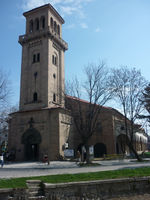
Pazardzhik was founded by Tatars from what is today Bilhorod-Dnistrovskyi in 1485 on the left bank of the river Maritsa, near the market of the region, an important crossroad at the middle of this productive region, and named Tatar Pazardzhik (Turkish Tatar Pazarcιk, "small Tatar market"). Thanks to this favourable location, the settlement quickly developed. While it was very small at the beginning of the 19th century, it became the administrative centre for the region at the end of the century and remained so until the Liberation from Turkish occupation.

During the following centuries the town continued to grow and strengthened its position. Trade in iron, leather and rice prospered. The town impressed visitors with its beautiful houses and clean streets. In 1718 Gerard Kornelius Drish visited Pazardzhik and wrote "the buildings here according to construction, size and beauty stand higher than those of Niš, Sofia and all other places".
The Russians under Count Nikolay Kamensky took the city after a brief siege in 1810. By the mid-19th century Pazardzhik was a big, important centre of crafts and trade, with a population of about 25,000 people. It hosted two big annual fairs, and a big market Tuesdays and Wednesdays. There was a post office with a telegraph.
In 1837 the Church of the Mother of God was built — an important national monument, famous for its architecture and woodcarving. In the mid-19th century Pazardzhik became an important cultural centre: a school was opened in 1847, a girls' school in 1848, a community centre in 1868, the women's union "Prosveta" in 1870.
During the Liberation War in 1877-1878, the town was burned by retreating Turkish troops. It was liberated on 2 January 1878 by General Joseph Vladimirovich Gourko's platoon. Pazardzhik grew and spread to the right bank of Maritsa river; barracks and an agricultural school were built.
From the early 20th century on people built factories, stores and houses, and thus the industrial quarter of the town. From 1959 to 1987 Pazardzhik was again an administrative centre for the region, and is again since the 1999 administrative division of Bulgaria.
Culture and pedestrian areas
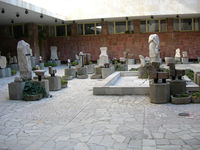
The Church of the Theotokos preserves the most impressive icons in Bulgaria by master artists of the Debar School, wood-carvings of New and Old Testament scenes, and icons by Stanislav Dospevski. Among the town's landmarks are also the clock tower, the ethnographic and history museums.
As with most Bulgarian cities, Pazardzhik has developed a significant pedestrian center, in which several central squares typify the European café society and pedestrian culture. In Bulgaria the café culture is particularly prominent, with many downtown squares easily providing up to a half dozen cafés, with ample outside seating.
Pazardzhik has a level of pedestrian streets (or network of carfree areas) even above the relatively high Bulgarian standard. There are several longer pedestrian streets, and at one point there is even an intersection where five different pedestrian streets converge. A few of these do not continue for very long, but most do, or are connected to the rest of the pedestrian areas of the city, and thus could be said to form the pedestrian network of the city.
During the warmer seasons, most afternoons of the week and especially weekends find a large number of people strolling about or sitting in cafés. There are few tourist attractions in this area but there are large supermarkets including Bila and a Lidl.
Pazardzhik Point on Snow Island in the South Shetland Islands, Antarctica is named after Pazardzhik.[1]
Restrictions on Public Demonstrations and Sexuality
In December 2009 the local authorities of Pazardzhik modified the regulations regarding public order to ban the "public demonstration and statement of sexual orientation." This ruling has been attacked as contrary to both Bulgarian and European law regarding the freedoms of expression and association. In spite of its vagueness, the ban has also been criticized for implicitly targeting the LGBT community in violation of existing anti-discrimination legislation. A civil rights group launched a court challenge against the ordinance; in August 2010 district prosecutor Stefan Yanev issued a decision turning down the complaint. In his decision Yanev argued that the city was in its right to protect "public morals" and compared homosexuality to pedophilia, bestiality and a range of other conditions. Yanev stated that a failure of the city to prevent the "demonstration and promotion" of such "indecencies," homosexuality included, would be "detrimental to society" as it would "turn away [the spectators] from their own orientation through perversion" Yanev's decision was subsequently overruled by the Supreme Administrative Prosecutor's Office in Sofia.
The bishop of Bulgaria's Plovdiv, Nikolay, has presented orders for "defending" Christian values to a controversial mayor and a notorious prosecutor, who were recently involved with anti-gay policies. Bulgarian Orthodox Church bishop Nikolay, who is known for his hardline stance on religion issues, has given the highest order of the Plovdiv Bishopric, "Holy Apostle Hermas", to the Mayor of the city of Pazarzhik Todor Popov and the Pazardzhik Prosecutor Stefan Yanev.. [2] [3]. Thus, the ban remains in place, although Bulgaria's ombudsman and the Commission for Protection against Discrimination are now fighting the city in court to have the regulation rescinded. http://www.novinite.com/view_news.php?id=119878
International relations
Twin towns — Sister cities
Pazardzhik is twinned with:
 West Bend, Wisconsin, USA
West Bend, Wisconsin, USA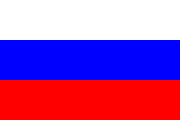
.png) Stavropol, Russia
Stavropol, Russia Chekhov, Moscow Oblast, Russia
Chekhov, Moscow Oblast, Russia Moscow, Russia
Moscow, Russia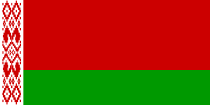
 Barysaw, Belarus
Barysaw, Belarus
Gallery
|
Old post building |
Street scene |
Street scene |
 Stanislav Dospevski's house |
Notes
- ↑ Composite Gazetteer of Antarctica: Pazardzhik Point.
- ↑ Прокурор обяви, че мимики и жестове скланят към педофилия и зоофилия Dnevnik, 12 August 2010
- ↑ Bulgarian Prosecutor Writes Treatise on Sexuality, Bans Public Gender Novinite.com, 12 August 2010
External links
|
||||||||||||||||||||||||||||
|
|||||
|
||||||||||||||||||||
